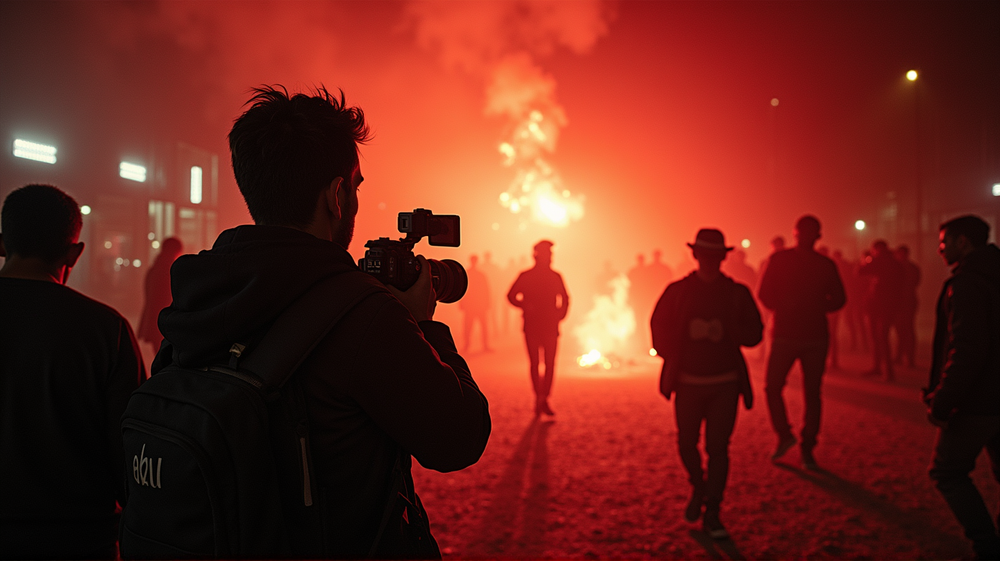In a world where journalists risk their lives to reveal stark truths, the tragic story of Anas Al-Sharif serves as a testament to the unwavering courage of those reporting from the heart of conflict zones. “If these words reach you, know that Israel has succeeded in killing me and silencing my voice,” penned Anas Al-Sharif, words that have become a chilling reminder of the hazardous reality faced by reporters in Gaza.
The Voice From Gaza
Anas Al-Sharif, a 28-year-old correspondent for Al Jazeera Arabic, became one of the symbols of brave journalism in a region torn apart by conflict. He, along with fellow journalists Mohammed Qreiqeh, Ibrahim Zaher, Mohammed Nufal, Moamen Aliwa, and Mohammed Al-Khaldi, were tragically killed when the Israeli military targeted their press tent near Al-Shifa Hospital in Gaza.
Their loss is not just a tragedy for their families but a significant blow to the international community’s understanding of the stark realities within Gaza. These journalists were key in unmasking the gritty truth of the ongoing siege that mainstream media could not.
A Testimony of Courage
Al-Sharif’s untiring quest for truth was recognized even in his final statement, anticipating his death. “I have lived through pain in all its details,” he wrote, embodying a steadfast conviction to deliver untarnished truth to the world, and seeking divine witness to the atrocity.
Despite Israel’s claims of Al-Sharif being aligned with Hamas, human rights advocates, including Irene Khan from the UN, decried these as baseless attempts to silence reporting on what she identified as genocide in Gaza. Khan herself was approached by Al-Sharif, pleading for international acknowledgment of threats against him.
Media Under Siege
The deadly attack on Al-Sharif and his colleagues highlights a disturbing pattern of targeting media members in conflict-ridden Gaza. Since October 2023, over 200 journalists have been killed, rendering Gaza as one of the most dangerous places for the press.
Israel’s ban on foreign media from Gaza raises concerns over the diminishing transparency of ground realities. While Prime Minister Netanyahu promised foreign journalists controlled access, censorship remains a formidable wall.
Unyielding Voices
Al Jazeera’s Mohamed Moawad paid tribute to Al-Sharif and Qreiqeh’s unwavering dedication, underlining that their voices continue to reverberate worldwide. Their narrative, built on scenes of devastation and heart-wrenching stories, brings to light the true cost of a conflict that often gets overshadowed by political discourse, according to Democracy Now!.
The stark contrast between the narratives controlled by military censorship and those told by native journalists like Al-Sharif is profound. His words have ignited a dialogue about the role of journalists as agents of truth in the midst of unfolding humanitarian crises.
Call for Accountability
The targeted killing of these journalists exposes the broader issue of media suppression and the dire need for international accountability. As the world bears witness to this tragedy, the responsibility to demand unimpeded access for journalists becomes more pressing than ever.
Amidst the shadows of violence, the voices of Anas Al-Sharif and his colleagues remind us of the enduring power of truth and the ultimate sacrifice made by journalists to uphold it. Their legacy continues to inspire a global community to stand against injustice and seek transparency even in the face of adversity.












